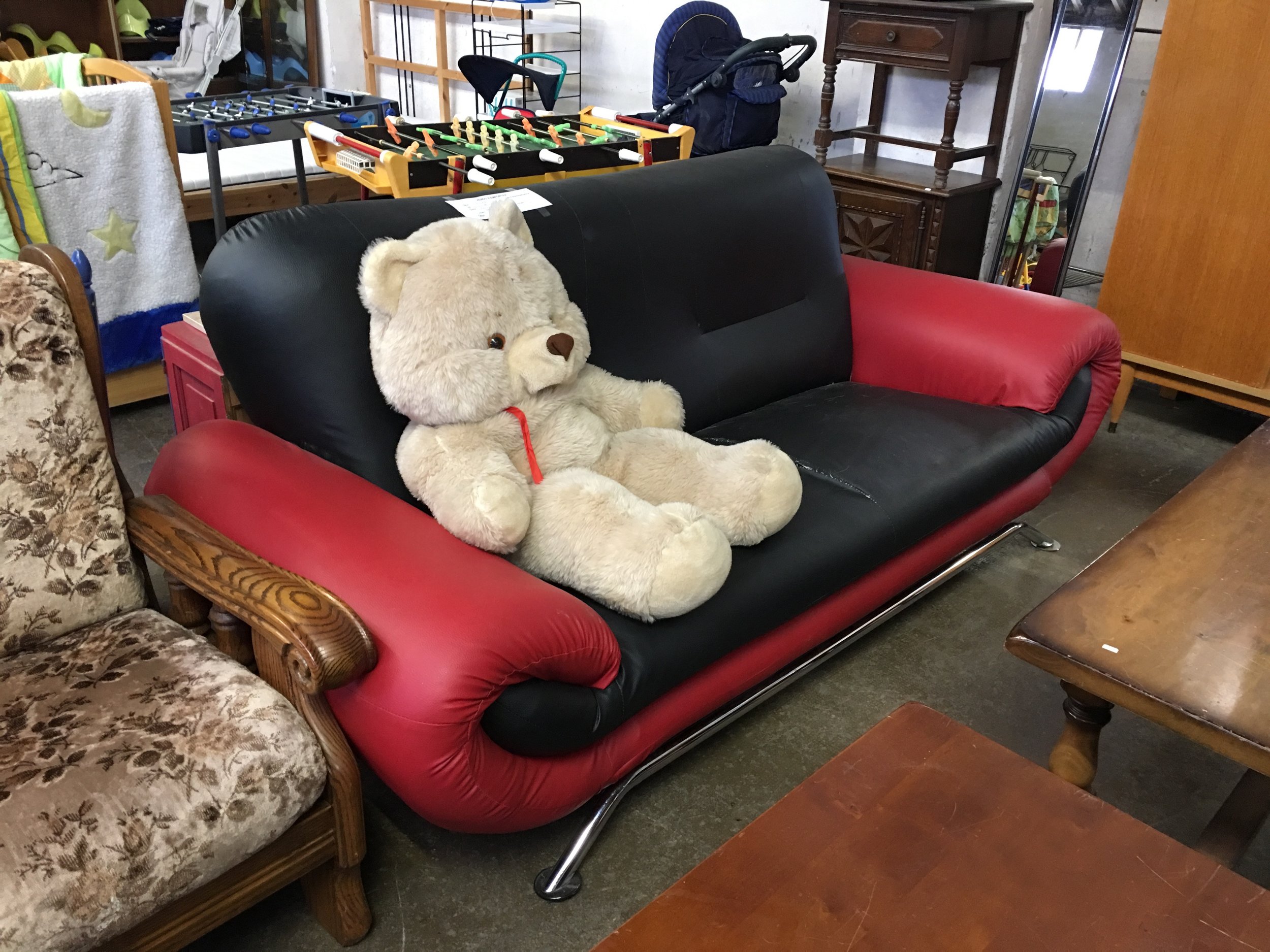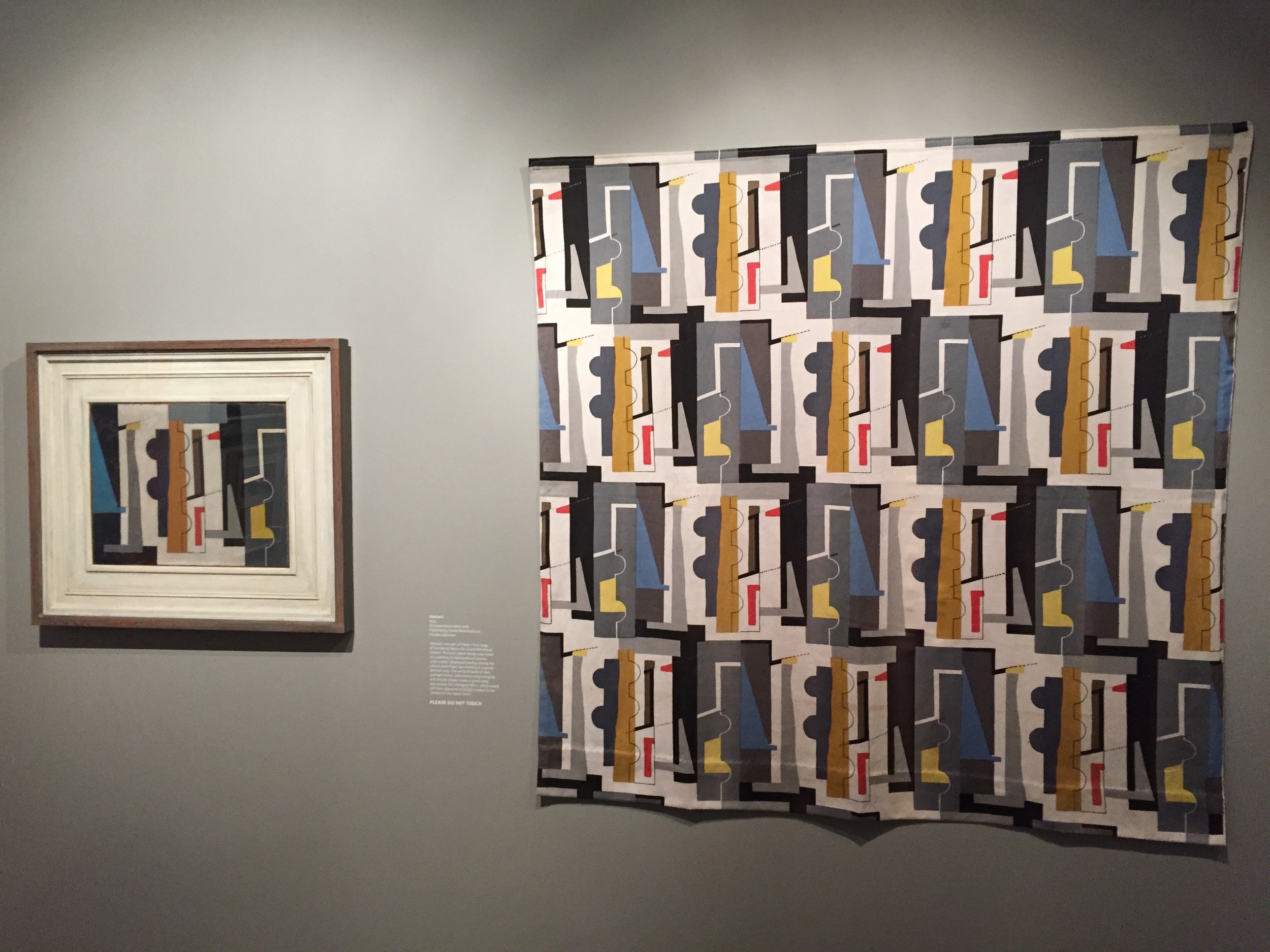Antiques enthusiasts are interested in condition, rarity and provenance and that is how it should be. But for me most of the things I sell have a story attached to them concerning how they were acquired. Take, for example, my stand this October at the Battersea Decorative Fair.
In the middle of the stand on the long wall there is a red tôle clock. I bought that in the south of France. It was a Sunday and I was attending the Beziers antique fair. It was raining so hard that venturing forth I was soaked to my underwear in a trice. All the stands were covered in steamed-up clear plastic sheeting. The wind howled and the rain lashed and I returned to the car to regroup, change my clothes and think what to do next. The fair finishes at about 11.30 and that hour was fast approaching. Esther said to me when I suggested giving up that I should go out ’one more time’. Unhappily I agreed, timidly splashing my way forward I spotted immediately a set of four Venetian gondola lanterns exquisitely painted and in superb - as new - condition, despite being from the 1820s. I paused as they were quite expensive and passed on, regretting my caution immediately. I turned back and they had been sold to another English dealer. Maddening. I shuffled damply forward and on the brink of heading back disconsolately to the car I spotted the clock. Unloved but worthy of love lying in a basket soaking wet. I rescued it with money. And now here it is.
The polished iron chairs came from a shop in Budapest. I had been working there helping a client furnish his house and I had a day spare. I went round the shops and found nothing, but at the end of the morning I found a shop belonging to Ernst Wastl and his glamorous wife Eleni. He took me under his arm and introduced me to hidden and obscurely located dealers and shops. I ended up buying widely but nothing from my benefactor. Finally he showed me his workshops and up on a shelf rusting away were these chairs. I loved them and I was able to show him some monetary appreciation for his efforts. We celebrated by eating fresh pan fried foie gras with apple sauce, champagne and shots of Palinka (the Hungarian fire water best flavoured with plum). Our late lunch finished at about 1 in the morning.
The satinwood table came from the swap shop. The annual festival of dealer trading that takes place at Stow on the Wold. For the last two years I have gone with Inigo and he drinks beer for both of us, seven pints is the standard level of consumption. About a dozen of us gather for a questionable curry on the eve, the table buzzes with teasing banter and general mutterings about the trade. The next morning at 9 we (and another twenty or so dealers) corral the gathered vans and swap ’til we drop. No money can change hands, the masters of this technique can accomplish the so-called ‘long swap’ where six or more dealers and innumerable pieces all trade at once. Max Rollitt and Tony Fell are the big dogs at the ‘long swap’; I am merely an observer at these master classes. But I do swap and this year I traded with the delightful Simon Pugh a pair of carved roundels for this fine desk. He was a fellow parent at my sons primary school and we had not met for more than a decade and a half. The perfect day was rounded off with a game of cricket where my darling son distinguished himself by getting a key wicket - caught and bowled.
The iron console I have been chasing for 5 years. Rather annoyingly for the dealer I used to ask the price every time I saw it and each time I would fuss around for a bit and then move on. Finally the dealer came up to me and said - are you ever going to buy that table? I folded and here it is.
The pair of Vesuvius views were bought from my favourite Dutch dealers. Wim has been buying and selling for 60 years. He and his wife live in a picturesque modern block of retirement flats in Den Bosch (Where Hieronymus came from). Each time we go he solicitously offers coffee and later a glass of wine. We look round his main room, followed by the bedroom and finally we glance into a cupboard. He is very gentle and restful and time spent in their company is most restoring - almost like a rest cure. Amazingly he always has something decorative, unusual and affordable to buy and I never leave without gathering one thing or another. These were hanging in the corridor between the main and bed rooms. The quintessentially Neapolitan scenes are therefore suffused with Dutch canal views, the coffee, wine and charming company.
The silver plate Borek Sipek candelabra was bought at the Montpellier antique fair. In the south of France there are three fairs that coincide on consecutive days four times a year. Beziers on Sunday, as above, followed by Avignon and finishing at Montpellier. You have to pay in cash and it is a constant worry not having enough or having too much. I found myself at the end of the day not having bought much and having a certain amount of cash burning a hole in my pocket. I noted this stand and asked about the object, they knew nothing about it. I asked the price and after some discussion we agreed a sum exactly coincident with the amount I had left - save 10 euros which we needed for the traditional end-of-last-fair celebratory glasses of champagne. Only back in London did I discover that it was by the Memphis inspired Czech designer - made in Holland.
The black standard lamp and the cherry tree table lamp came from my friend Andrew. He first appeared outside Mallett many years ago offering a motley selection of curious and delightful objects. From a slow start he became, from the back of his car, or occasionally a van, one of the most regular suppliers. We became friends and his elegant, bold style of design provided many a beautiful addition. The Mallett catalogues from 2000 onwards are testament to that. Despite having left Mallett our friendship continued and I have enjoyed his company regularly on a Friday as he pops in for a strong espresso at the beginning of his rounds. The coffee is followed by a perusal of his recent acquisitions in the van and I have often succumbed. These pieces being a couple of examples. Our practice is to photograph items on the grass in front of the house. It is a charming setting and I have on occasion sold things to clients on the basis of those pseudo-bucolic snaps.
Nearly all purchases have a story to tell, of negotiation, of friendship, of serendipity, each one new and somehow familiar. It is not usual for these tales to survive the purchase so here are a few as a taster.























